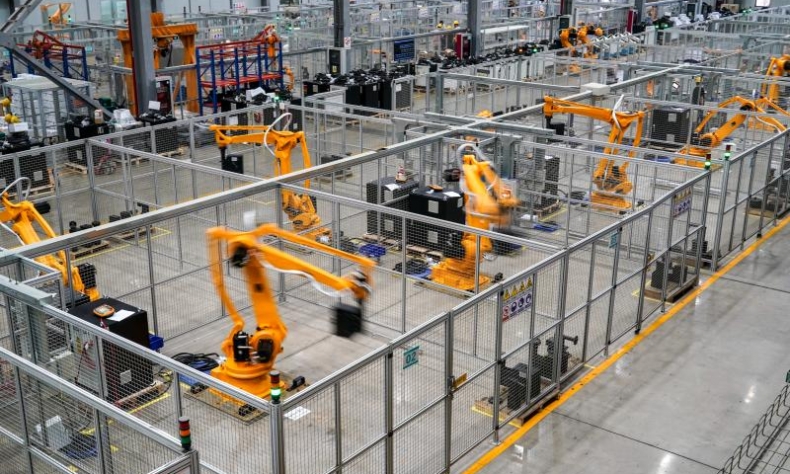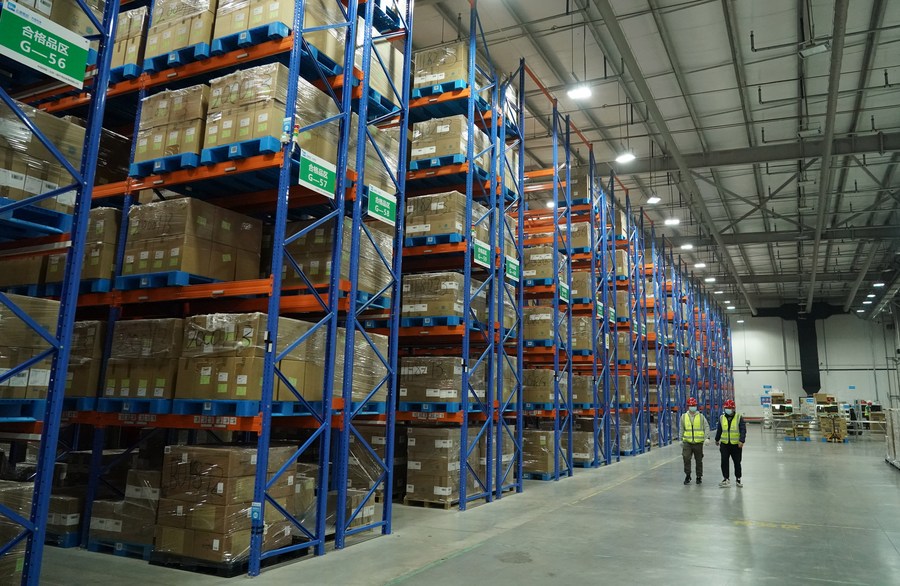Is Virus Resurgence Putting Economy at Risk?

It is unwise to do away with COVID-19 controls altogether in order to save the economy when China’s actions are already shoring up stability and sustaining growth.
Over the past few weeks, China has battled the spread of the Delta variant of COVID-19 across several provinces. The strong response of the authorities to the outbreak has seen areas targeted with lockdowns and mass testing. Despite the fact that locally transmitted infections diminished to just 15 on Monday, many mainstream Western media outlets nonetheless continue to argue that Delta is a threat to China’s economic recovery.
The argument technically makes sense given that lockdowns and intense social distancing immediately reduce consumption, and make the operation of some businesses such as restaurants, cafes and cinemas completely untenable. This potentially increases unemployment while reducing public confidence. Therefore, shouldn’t China’s recovery be in doubt, despite being forecasted by economists to rebound between 8-9% in 2021? Many news outlets have concurrently made these kinds of statements in order to argue against a stringent pandemic prevention and control approach to handling the virus in favour of the economy. This is the strategy the U.S. and the U.K. have pursued at a horrific human cost.
However, what these arguments fail to acknowledge is that China’s immediate, strict and uncompromising approach to quashing the virus has less of an impact on growth than the West presumes, because it makes short-term sacrifices on behalf of the long-term interests of stability and the economy, and this itself reaps gains. It is easy to point towards the rapid growth in the U.S. and U.K. and say that their approach works, but this obscures the immense mistakes and costs these countries have suffered having mismanaged the pandemic.
In 2020, China became the world’s only major economy to register a positive GDP growth, ranking at 2.3%. While this was vastly reduced than usual years owing to the initial Wuhan shutdown and a fall in global consumption and exports, it was nonetheless a victory. China had taken the same approach which it is taking now, and its reward was a recovery which was stable and natural. The stability has also seen investors pile into China as they have confidence in its economy. For the first time, China in 2021 became the world’s largest recipient of FDI. Some things of course such as local consumption did take longer to recover, yet there is little argument it was in a better state, and not only that but China’s push to normality did not come at the cost of 620,000 lives as we are seeing now in America.

In addition, China’s recovery has come without the enormous fiscal burdens the U.S. and the U.K. have thrown at their recoveries which have involved borrowing and throwing trillions of dollars into their economies. America waged multiple stimulus payments to kickstart their economy, which have breached the U.S. debt selling and pushed the budget deficit to an all-time high. This will be economically damaging in the long run. Britain likewise has run up its highest public debt and deficit since World War II. Again, this will catch up with them. The positive economic numbers right now only show their economies rebounding from steep declines and does not mean they are booming.
On the other hand, while China has utilized some monetary policy and support for businesses affected by the pandemic, it has done so conservatively and does not need to accumulate trillions in new debt to facilitate its recovery, which is more organic. Its growth is more accumulative as opposed to recovering from record declines caused by excessive and extended lockdowns by governments who mismanaged the pandemic.
In addition, China’s current lockdowns are never broad in scope. They are targeted and regional in the area of infection, not nationwide. This approach is working, again as noted on August 16, local cases had come down to just 15, showing how testing and contact tracing is getting ahead of the curve. Things will subsequently return to normal, meaning local economies may hit a speedbump but the fundamentals are all there to resume as they were.
In this case, it is unwise to do away with COVID-19 controls altogether in order to save the economy when China’s actions are already shoring up stability and sustaining growth. The Western mainstream media should recognize that by letting the Delta variant run riot in favour of the economy, the U.S. is not coming out “smelling of roses.” The average death toll is up to 800 a day again, daily cases are close to 150,000, and this situation itself is eroding public and investor confidence. To let Delta run riot in a country is a dangerous experiment that will cost human lives.
 Facebook
Facebook
 Twitter
Twitter
 Linkedin
Linkedin
 Google +
Google +







